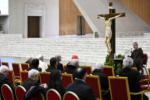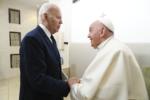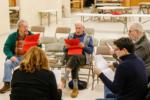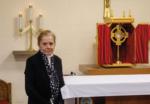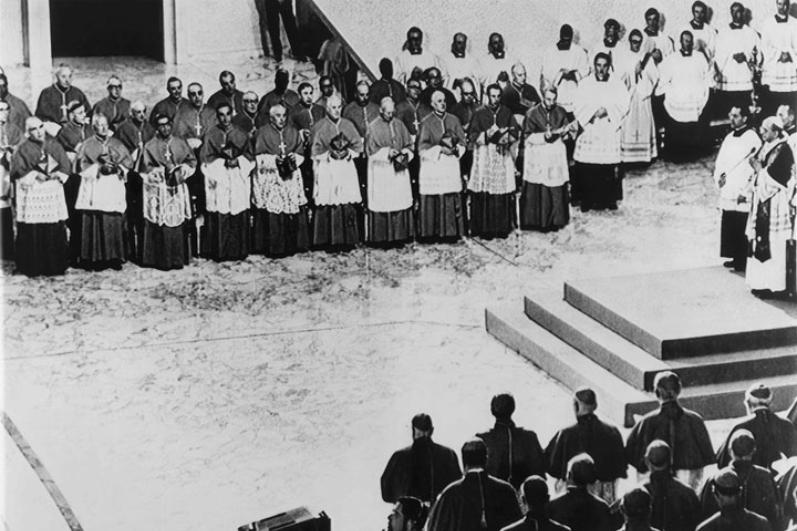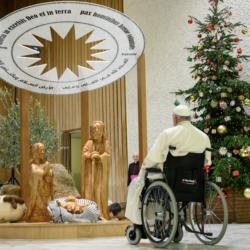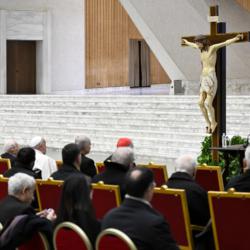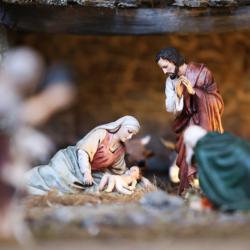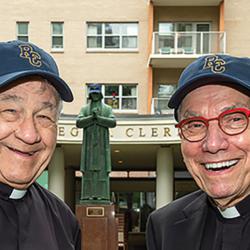The 50th anniversary of Cardinal Medeiros's elevation
On March 5, 1973, as Pope Paul VI elevated Archbishop Humberto Medeiros to the rank of cardinal, "the strongest and most sustained applause of the morning was reserved for the Archbishop of Boston," The Pilot reported at the time. Observed in the Vatican's Audience Hall in front of nearly 6,000 celebrants, Pope Paul VI welcomed 30 clergymen, including three Americans, to the rank of cardinal. Among the crowd were hundreds of Bostonians who had traveled to Rome in support of the elevation of their archbishop, including Bishops Jeremiah Minihan, Lawrence Riley, and Joseph Maguire as well as Bishop Daniel Cronin of Fall River, various clergy, Boston Mayor Kevin White, and Massachusetts Gov. John Volpe.
While Cardinal Medeiros's support in Rome was substantial, his path to cardinal served as a symbol of triumph over a difficult origin. Born in Arrifes on the Azorean Island of Sao Miguel on Oct. 6, 1915, Humberto Medeiros grew up "poor from the start, a struggler in his youth, (and) the beneficiary of numberless kindnesses from those who recognized his worth," according to The Pilot.
Despite not being from Massachusetts, his ties to the area developed long before his ascension to cardinal. In April 1931, he moved to Fall River to join his family who had immigrated from Portugal before him. After graduating high school in Fall River, Cardinal Medeiros studied for the priesthood at the Catholic University of America before returning to his roots in Fall River, where he was ordained a priest in 1946. After ordination, he continued his studies, first at Catholic University and then at the Gregorian University in Rome, where he earned his doctorate in theology. Once again, after receiving his education, Father Medeiros returned to the familiarity of Fall River, where he served as assistant pastor in various parishes.
Acknowledging his ability to lead, in April of 1966, Pope Paul VI named him the second bishop of the Diocese of Brownsville, Texas. For his four years in Brownsville, Bishop Medeiros revealed his strong commitment to social justice. Known for his "concern for the unborn, compassion for migrant workers, and support for racial justice," Medeiros was a member on the National Conference of Catholic Bishops' Ad Hoc Committee on Farm Labor and advocated diligently for the collective bargaining rights of farm workers in the Diocese of Brownsville.
His commitment to the marginalized followed him back to New England in 1970 as he returned to Massachusetts to be named Archbishop of Boston. Upon his return, Cardinal Richard Cushing lauded Medeiros as being "a friend of the poor, and a strong supporter of the rights of the dispossessed and the deprived." At his installation as archbishop, Archbishop Medeiros reminded the audience that "it is impossible to be a Christian without being concerned for every man, without being involved in the real-life situation of every brother," highlighting the message that he stood by throughout his life.
It is in this context that Cardinal Medeiros and his Boston supporters gathered in the Vatican Audience Hall on the morning of March 5, 1973. It is no wonder, then, that "if there was a 'star' of the day -- save for the pope himself -- it was the humble Azorean who had succeeded Richard Cardinal Cushing" at the elevation of the newest cardinals.
In his new role, Cardinal Medeiros's commitment to social justice aligned with a critical time in the Archdiocese of Boston history. Most notably, as the Boston school busing crisis ramped up in the year following Cardinal Medeiros's ascension to the cardinalate, he exemplified his dedication and commitment to others, despite the divisive nature of the issue. An active promoter of court-ordered busing, Cardinal Medeiros resolutely and vocally stood against the racism he saw. Racism, he said, is a "moral sickness which is seriously weakening our society . . . And it will only be cured when all of us admit the pervasiveness of the malady and determine to struggle in unity against it." As cardinal, Cardinal Medeiros demonstrated the importance of defending those in society who needed it most, from the support of busing to the creation of low-income housing. Referring to the cardinal's stance on the conflicts over the busing issue, Gov. Michael Dukakis praised "his moral leadership during Boston's darkest hours" that "stand as a monument to courage, decency, and brotherly love," highlighting the importance of his influence.
Cardinal Medeiros served as archbishop of the Archdiocese of Boston for the next 10 years, until his death in September 1983. He participated in the conclaves of 1978, which elected Popes John Paul I and John Paul II and was a member of the Vatican Congregations for Bishops and for Catholic Education. As stated by Cardinal Seán P. O'Malley, "from Fall River to Brownsville to Boston, this devoted servant of God made quite an impression on so many people who continue to speak of the goodness and kindness of Cardinal Medeiros," even 50 years since his elevation to cardinalate.
JOY ZANGHI IS AN ARCHIVIST FOR THE ARCHDIOCESE OF BOSTON.

